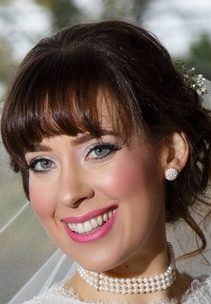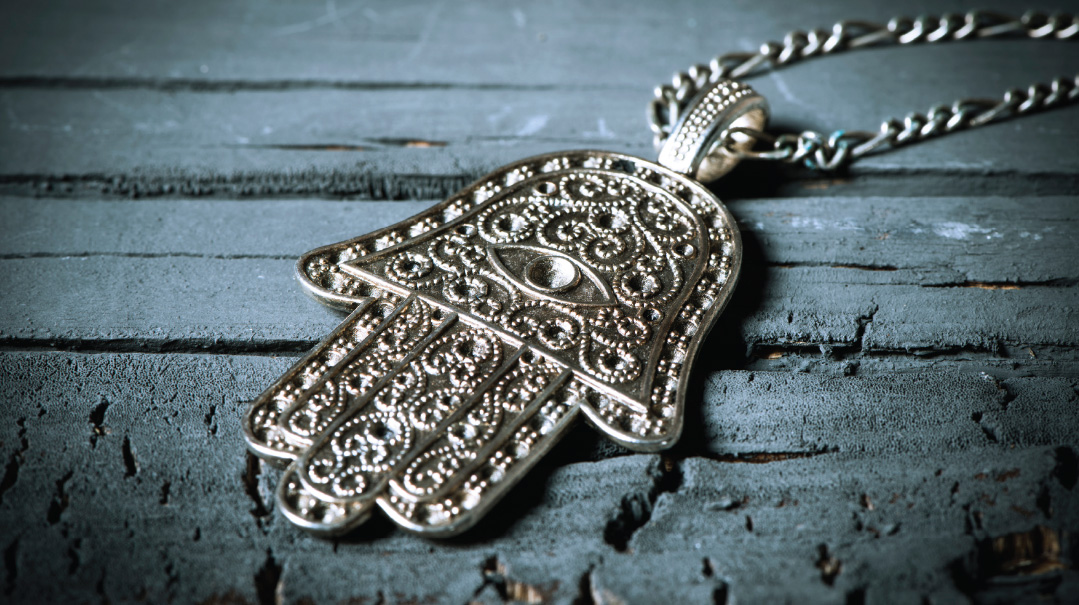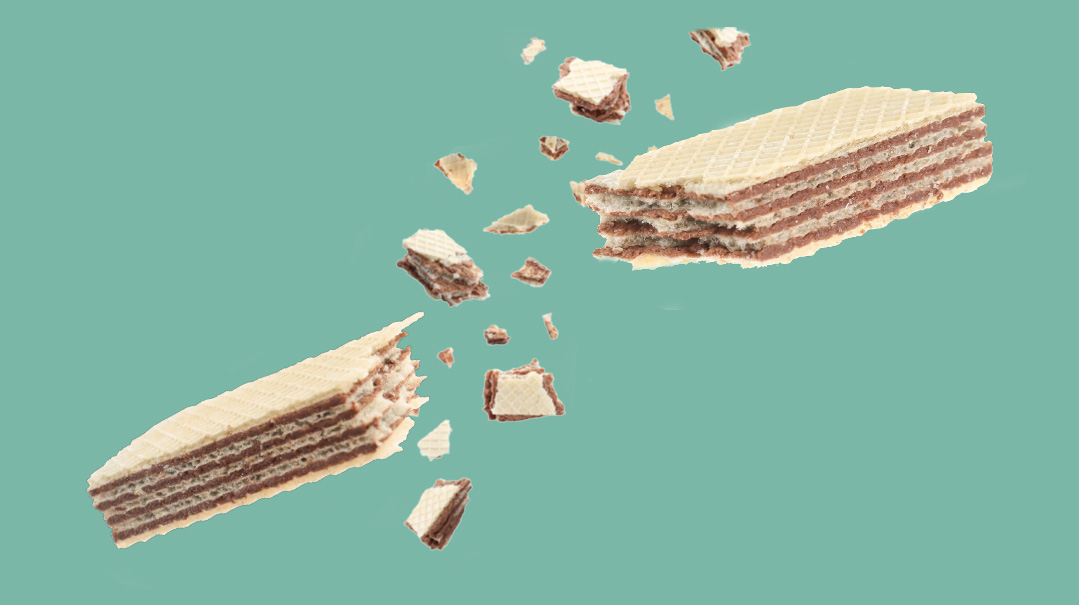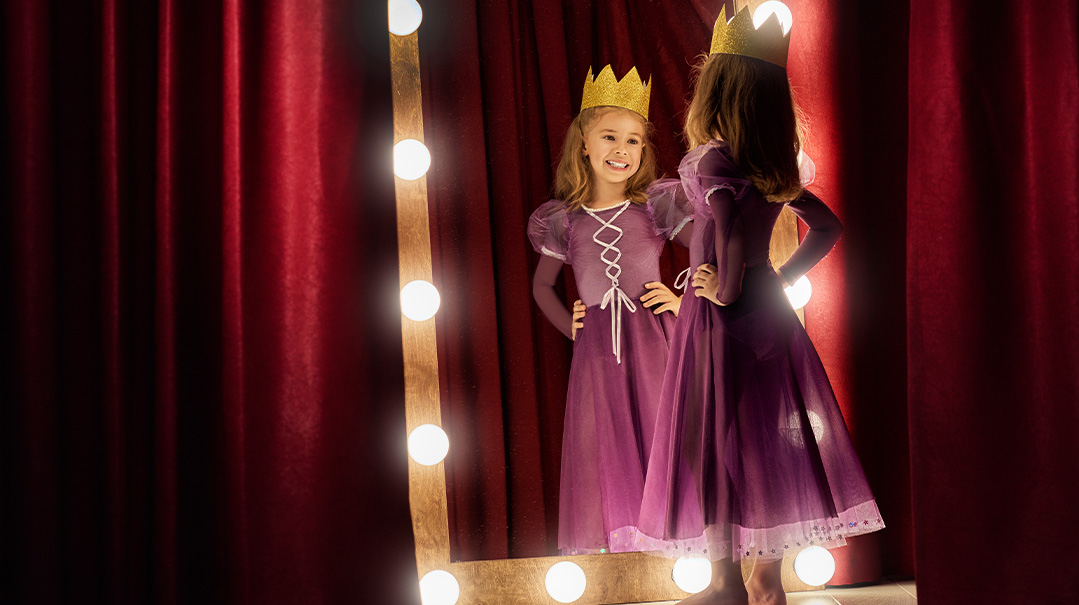Bli Ayin Hara

Optimism? It clashed with my inculcated weltanschauung, that of straight-up fear

“Ayin hara!” I hiss at my husband.
“I’m just saying—” he attempts to respond, but I snap, “No saying! It’s not ‘just’ saying! Saying is enough!”
I have come by this fear of talking honestly. While Babi would fish out her bundle of red yarn to tie around the chubby wrists of her infant eineklach, that wasn’t Zeidy’s anti-ayin plan of attack. His was based in speech. He would never gush or fuss. It wasn’t that Zeidy rarely talked, but his words were carefully measured. Any chatter that could be perceived as boasting was verboten. Even when his daughters were dating, when most praise their offspring to all and sundry, the most he would admit in their favor was their height.
Some perceive ayin hara as an independent, malicious entity that can wreak havoc, which can be neutralized by a variety of rituals. Zeidy saw it differently: Brachah comes in quiet places. Everything is dependent on the Bashefer. There should no confident assumptions about the future, for that is not up to mere mortals. We’re all better off keeping our mouths closed.
Zeidy was troubled by the modern trend of public praise at simchahs. A bar mitzvah, in his view, is a time to instill in the boy/man the importance of his actions going forward, not to list his stellar, shining qualities.
My mother z”l learned this lesson all too well. But her focus was babies. While she spent my dating years cheerfully shopping for household items for my as yet nonexistent future home, she wouldn’t purchase anything for a gestating fetus. She kept a supply of baby outfits for gifts in general, never for anyone in specific. She didn’t even feel the need to be informed of a pregnancy — and certainly didn’t share that news freely.
For Ma, the most important thing was that a baby be healthy, and she followed her father’s protocol.
When my turn came, I echoed Ma’s actions — or inaction, to be precise. While she had passed on, her caution remained. I reluctantly told only those who should be told, and was alarmed by any excited responses. Be quiet! I internally panicked. Every time my husband wanted to make a purchase or a plan for the future, I nervously shut it down. I marched resolutely past the racks of adorable outfits in stores, davening under my breath.
I’d underestimated how overwhelmed I would be postpartum — and I owned no baby paraphernalia. My husband borrowed a niece’s outgrown car seat to get home from the hospital. My sister and sister-in-law rose to the occasion, arriving with baby necessities, some new, some from storage. It’s rather stressful to be responsible for a helpless, mewling newborn and not have anything prepared for him.
I like to research, to analyze multitudes of opinions, to purchase with deliberate intent. But I was so incapacitated that I didn’t have the wherewithal for that at all. Still, I didn’t regret what I had to do to prevent ayin hara. There was no other option — I believed.
Then, when the baby was a few months old, a friend blithely texted that she was expecting, and she wanted my input. What is the best brand of diapers? Favorite pacifier? Bottle preference?
I was stunned by her… casualness. I mentioned my surprise to my sister-in-law. What about ayin hara? “Some people see it another way,” she explained. “They intentionally prepare for a baby to show that they have emunah that everything will turn out okay.”
Huh. Well, this was a new concept. Optimism? It clashed with my inculcated weltanschauung, that of straight-up fear.
But then, there were times when Ma was optimistic. All throughout my dating decade, she squirreled away pots and dishes and glasses and towels and sheets and ensembles and shoes with the firm conviction that I would marry, and happily, at that.
And I did.
So, when I was expecting again, I considered: I can’t do what I did before. We had never responsibly replaced the borrowed car seat (from lack of energy). I’d need a double stroller, and I didn’t want to buy one of those out of exhaustion (when we had previously gone with a basic stroller and stayed with it). Additionally, it would be the dead of winter, and I feared that the new arrival would be cold on the way home from the hospital (I had no fuzzy buntings appropriate for a newborn).
It’s hard to go against one’s internal programming. Luckily, we have internet now, so I didn’t have to ask anyone else for their recommendations — I could at least stay silent while I clicked through checkout. I quietly acquired a new car seat (selected for being lightweight) along with a coordinating caddy, a double stroller (that has canopies that come down low, as I’m sensitive to the sun), and warm, cuddly attire in gender-neutral green and seafoam.
I still kept as reserved as I could. I didn’t purchase any other new outfits or nonessential baby gear. My husband, though, delightedly sensing a mellowing on my part, bought stretchies galore behind my back. When he brought these home, I decreed, “They’re gifts.” They filled two storage bins, those “gifts.”
During my pregnancies, I’m typically a nervous wreck. But during this terror-glazed time, I was introduced to yet another concept: ayin tov. To see the world — and others — through rose-colored glasses. For me, until now, the only method to keep ayin hara at bay was to keep schtum. But do not judge lest ye be judged sounds like a viable, additional antidote. Would the Eibeshter cast a kind eye my way if my own outlook was less critical? I decided yes.
On one side, I come from an anxious people, whose imaginations would veer into that of the horrific with little incentive. But on the other, there is a positive outlook without the taint of panic.
There should be a way to balance both perspectives.
I can hold my tongue… and still be hopeful.
(Originally featured in Family First, Issue 840)
Oops! We could not locate your form.






